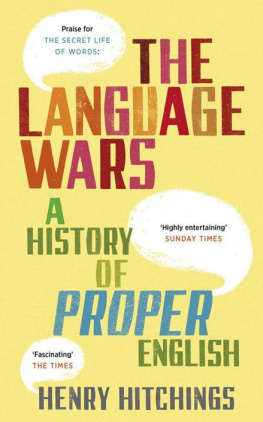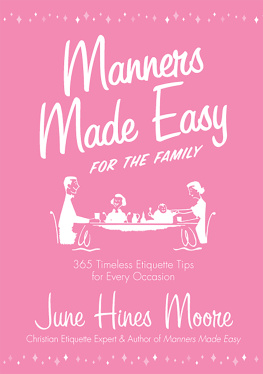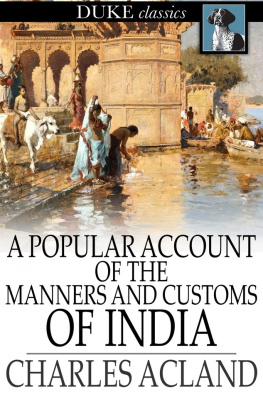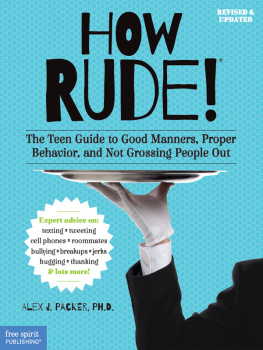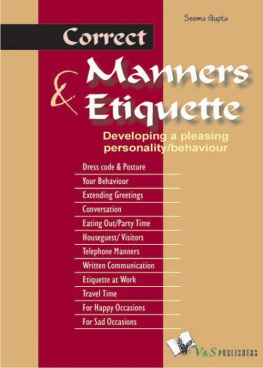
The author and publisher have provided this e-book to you for your personal use only. You may not make this e-book publicly available in any way. Copyright infringement is against the law. If you believe the copy of this e-book you are reading infringes on the authors copyright, please notify the publisher at: us.macmillanusa.com/piracy.
Please note that some of the links referenced in this work are no longer active.
Contents
A note on the text
In quotations, spellings have been adjusted to conform to modern readers expectations. I have also standardized the spellings of names.
The stars tennis balls
or, a short introduction from an unusual angle
In 1977 an eighteen-year-old American skipped his high school graduation to play tennis in Europe. Although an amateur, he competed against professionals thrilling fans and maddening traditionalists with his prickly, passionate attitude. Even to people for whom tennis was of little interest, his behaviour seemed at once scandalous and magnetic. Two decades later a sociologist, E. Digby Baltzell, would assess the players impact in his book Sporting Gentlemen . This had had a rather more catchy working title: John McEnroe and the Decline of Civilization .
Tennis mattered a lot to me when I was a child. Each summer I would go square-eyed watching Wimbledon. In the first couple of years that I was able to follow it, I registered McEnroes sulky petulance, and registered also how violently it was at odds with the coolness of his great rival, Bjrn Borg. I liked Borg, the doleful-looking Swede who reputedly slept surrounded by his racquets, and was encouraged in this preference by my parents.
McEnroe was considered a disgrace because he flouted the norms of a sport steeped in tradition, showed no regard for authority, and always insisted that he was right, even when (and partly because) such insistence was guaranteed to be futile. His technique disclosed his angsty nonconformity. In a review of one of the players televised matches, Clive James observed that McEnroe gave the impression of serving around the corner of an imaginary building; his service motion, apparently developed to prevent back pain, seemed consonant with paranoia. Meanwhile his demeanour was as charming as a dead mouse in a loaf of bread. A further source of outrage was McEnroes appearance: his air of dishevelment (wild hair, sloppy socks, a mystifying lack of muscle tone) meant that he looked like a dabbler, at a time when tennis was embracing the bland ruthlessness of professional sports management. McEnroes manners grated. His defiance stemmed from a hatred of anything that seemed phoney; he suffered not from a lack of sensitivity, but from a tendency to be hypersensitive in situations where he was meant to be stoical.
Borg and McEnroe suggested two distinct ways of experiencing the world, two distinct ways of greeting fortune and misfortune. Borg was the embodiment of restraint and politesse, averting his gaze from his own excellence, whereas McEnroe was the embodiment of well, of what E. Digby Baltzell considered calling the decline of civilization.
The choice between these two figures and their attitudes was presented to me explicitly. Neither was English, but I saw the drama of their rivalry in an English setting, and it spoke to an English audience. Here were two approaches to life: the mannerly and the unmannerly. One player kept his feelings locked up; the other expressed them continually. One had eliminated all trace of intimacy from his behaviour; the other was forever admitting us to an intimate place we didnt want to go.
Yet now the choice between Borg and McEnroe feels different: we find McEnroes conduct authentic, even courageous, while Borgs seems that of an android. In his autobiography, Serious , McEnroe writes that Where money and publicity meet, theres always excitement, but good behaviour is rarely part of the mix. Manners are the operating rules of more stable systems I thought tennis had had enough of manners. To me, manners meant sleeping linesmen at Wimbledon, and bowing and curtsying to rich people with hereditary titles who didnt pay any taxes.
To McEnroe, as to many people, the notion of manners seems old-fashioned and starchy, and it also means something divisive, corrupt, shamefully unquestionable and quintessentially English. The manners of every society encode a particular view of the world. They can be understood as a system for producing a sense of togetherness or minimizing a sense of not-togetherness. But in the pantheon of national stereotypes, English and manners go together like French and romance or German and efficiency .
In the pages that follow, I examine English manners. I also examine Englishness. It therefore seems appropriate to say something about the words English and British . The distinction between them is one that English people often fail to observe; in the eyes of the Scottish and Welsh, it is much clearer. Britain is a political construct; the Act of Union in 1707 joined England, Wales and Scotland as one united kingdom by the name of Great Britain. This construct, which blurred traditional divisions, was strengthened by a reaction against all that was encountered overseas. As a political concept, Britain has worked, but at root the people of England, like the people of Scotland and Wales, feel that while British may be the name for what they are, it is not who they are.
Because I have Welsh and Scottish antecedents as well as English ones, I call myself British. Yet to foreigners I undoubtedly seem deeply English. Some years ago, on a trip to Japan with students from a dozen other countries, I referred to myself as a European and was mocked for doing so by my generally charming companions. As one Belgian member of the group put it, The English really are not Europeans. Im not English, I countered. The response was a chorus: Oh yes, you are. What did Englishness mean to these citizens of Sweden, Portugal, Austria and Greece? Mainly it consisted of belligerence, xenophobia and crudeness, leavened by a chummy warmth. We like the English, said one young woman from Barcelona, and we know you like us. But youre still, you know, different the English, hes partly a friendly person whos polite and easy, and partly a guy who likes football and beer and is really loud. It meant something to my companions to think of me as English, and when I said I was British I was regarded as invoking a technicality.
To speak of English manners, rather than of British ones, is to recognize something visceral. As I investigate this, in the chapters that follow, I also discuss manners in general. I could hardly not, for, as I shall show, the sources of many of our ideas to do with manners are not English at all. Manners are neither an English invention nor a modern one. A global history of the subject would reach back at least as far as the twenty-fifth century BC , when the Egyptian vizier Ptahhotep issued a set of maxims about appropriate behaviour. It would take in the Chinese thinker Confucius, the Roman statesman Cicero, the great compendium of Jewish lore known as the Talmud, and Abu Hamed Mohammad ibn Mohammad al-Ghazali, a scholar who almost , years ago wrote about adab , the code that provides Muslims with a model of respectfulness. The coverage of medieval Europe might start with Thomasin of Zerklaere, an Italian who produced a didactic poem about manners around 1215 . Writing in German, Thomasin offered guidance on matters such as where to look when riding a horse (upwards, rather than at ones legs), and advised young men not to step on benches and women not to look over their shoulders.
Guides to manners have not always begun as reactions to bad behaviour attempts to halt social decline yet implicit in every such work, and explicit in most of them, is an anxiety about slipping standards or a belief that tighter codes of conduct need defining. Today it is common to remark that the little civilities that make life bearable are vanishing, that people from whom you expect flawless behaviour instead act rudely, that conflict is more common than rapport. We seem to be inundated with stories of degeneracy: politeness is expiring. Thus, for instance, the Daily Mail in April 2008 reported a new study claiming that bad manners were the biggest problem facing society. Behaviours cited as giving especially grave offence included spitting and swearing.
Next page


